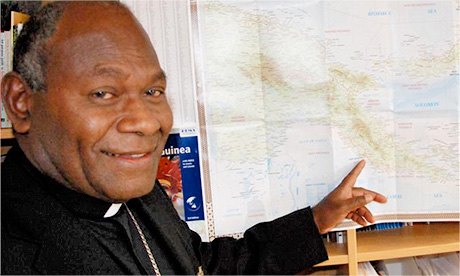Recently, the heads of six continental Catholic bishops’ conferences issued a rare joint statement. Their subject was climate change.
The conferences, including the Federation of Catholic Bishops’ Conferences of Oceania, to which Papua New Guinea belongs, decided that climate change warranted the unusual time and attention to develop a globally united statement.
The reason is that climate change calls on the beliefs and values that are core to our faith.
Climate change challenges our commitment to protect “the least of these.”
Climate change is driving an increase in the likelihood of extreme storms, growing deserts, and rising seas.
In turn, these weather disasters affect the human family, increasing the risk of hunger, migration, and conflict.
These consequences are not equally borne.
- The very poor and the very young, who are the most vulnerable members of our human family, bear the brunt of these disasters.
- They are more likely to live in a house that can be washed away by a strong storm.
- They are more likely to lack the resources needed to escape the storm’s path.
- They are more likely to have no way to rebuild a home, replant a field, restart a school. In the Carteret Islands, for example, villagers are seeing their gardens and wells salinated by the rising seas.
- They often have no recourse but to start over elsewhere.
The same is true of other countries in the Central Pacific who face relocating people.
Finally, it deeply saddens me and my brother bishops that the most vulnerable among us do often pay the ultimate price of climate change.
The World Health Organization estimates that more than 200 children now die each year in Papua New Guinea from effects related to climate change.
The failure of food gardens due to drought or the increased salinity of ground impacts heavily on subsistence farmers.
This challenge to our conscience is why the bishops of the world said that “human dignity and rights, in particular of the most vulnerable, must always be at the centre of the climate agenda.”
We in Papua New Guinea do not face this challenge alone.
We are joined by nearly 50 nations of the Earth in the Climate Vulnerable Forum, a platform for vulnerable countries to discuss their shared challenges and strive for shared solutions.
The forum is intended to build consensus and advocate for sensible, timely solutions to the crisis we face.
The Climate Vulnerable Forum recently concluded its summit, and at the top of the agenda was limiting global warming to 1.5C over pre-industrial levels.
The difference between 1.5C and 2C of warming is the difference between prosperity and poverty, life and death, protecting “the least of these” and ignoring their pleas for help.
The summit shared stories of people in countries like Papua New Guinea who are already affected by the climate crisis, and stories of people who are moving forward in hope and courage to achieve solutions.
These stories of hope are crucial as we chart the unknown waters that lie before us.
The good news is that primary solution to the climate crisis is clear: we must stop using fossil fuels, and we must do it as quickly as we can.
Around the world, farsighted men and women are already taking this solution in their grasp.
The clean energy industry now employs nearly 10 million people and generates over $1 billion per year around the world. Continue reading
- John Cardinal Ribat is the Archbishop of Port Moresby, Papua New Guinea and past president of the Federation of Catholic Bishops’ Conferences of Oceania.
- Image: Kiz-Online
